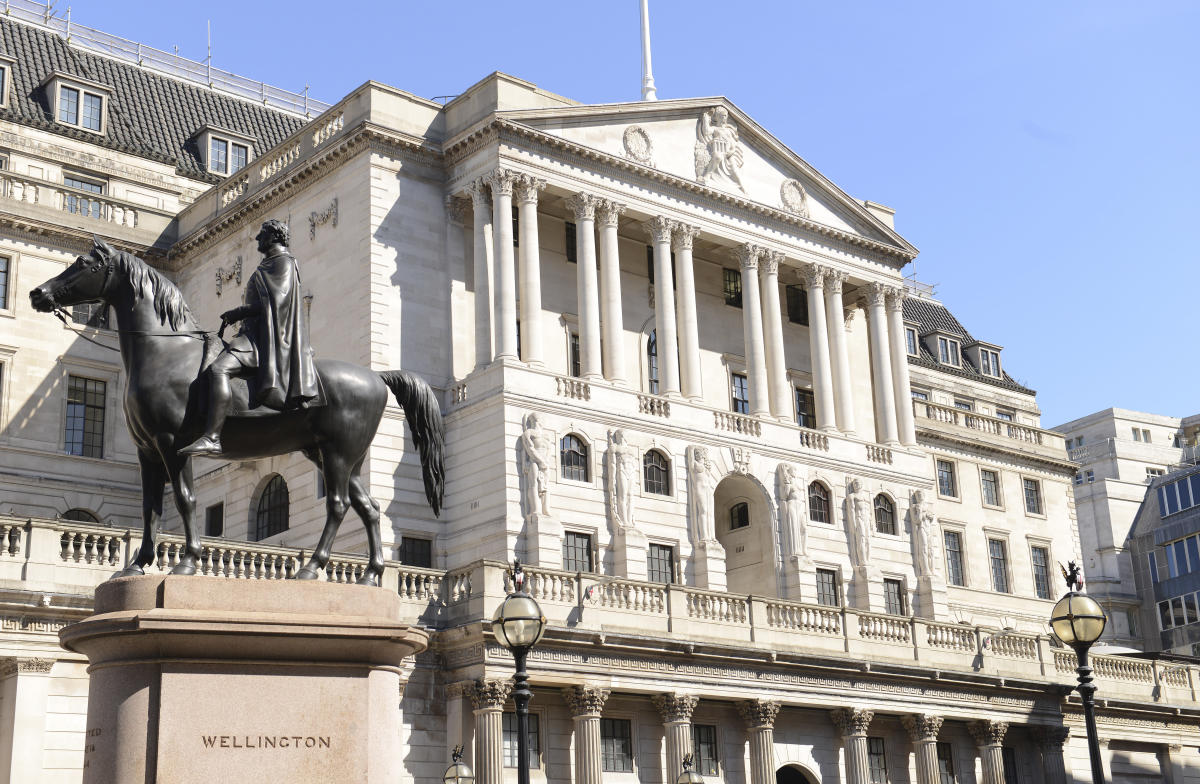The Bank of England raised its key interest rate by half a percentage point on Thursday and indicated that more hikes were likely, despite a looming recession, as it tries to bring down inflation that hit a 41-year high in October.
The BoE's Monetary Policy Committee voted 6-3 to raise Bank Rate to 3.5% - its highest since 2008 - from 3.0% and said more increases may be required to tackle what it fears could prove to be persistent domestic inflation pressure from prices and wages.
But only one policymaker, Catherine Mann, wanted to match November's bigger 0.75 percentage point increase - the BoE's largest in more than 30 years - and two MPC members voted to keep rates on hold.
Sterling weakened against the U.S. dollar after the BoE's decision, falling to around $1.23, and it also declined against the euro. British government bond prices were little changed.
"While the 50-basis-point increase in the Bank rate was as expected, the extent of the divisions across the committee is an eye-opener," Philip Shaw, an economist with Investec, said.
"While it is normal to see policymakers disagree towards the end of a rate cycle, the split makes it more difficult to predict the extent to which interest rates will rise."
On Wednesday, the U.S. Federal Reserve also slowed the pace of its rate hikes while pointing to more tightening in 2023.
Shortly after the BoE's announcement of its ninth rate hike in a row, the ECB said it was also raising rates by half a percentage point and that further increases were likely.
Western central banks are grappling with post-COVID labour shortages and the inflationary impact of Russia's invasion of Ukraine on energy prices while also worrying about the risks of recession.
"The labour market remains tight and there has been evidence of inflationary pressures in domestic prices and wages that could indicate greater persistence and thus justifies a further forceful monetary policy response," the BoE said.
The BoE statement did not repeat unusual language from November which said rates were unlikely to need to rise as far as markets expected.
Market rate expectations have fallen since then, and after Thursday's decision showed investors expected rates to peak at 4.5% in August 2023, slightly lower than before.
The two policymakers who voted for no rate hike at all, Silvana Tenreyro and Swati Dhingra, said the tightening of monetary policy to date was "more than sufficient" to get inflation back to target.
KPMG UK Chief Economist Yael Selfin said Bank Rate would probably peak at 4% in the first half of 2023 and rate cuts could come as soon as 2024 as the government tightens its purse strings and the economy needs help after the expected recession.











